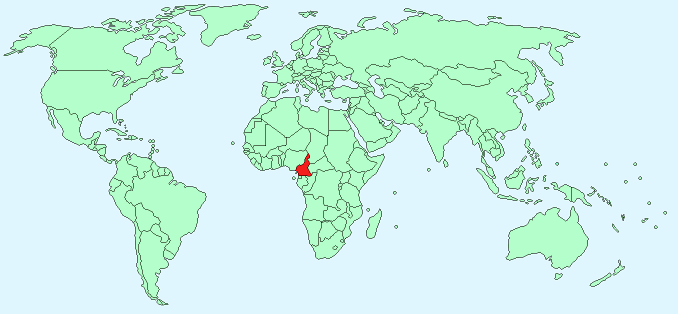THE RETURN OF THE EXILES
Culled from the blog “New Cameroon Views”: First Published there on November 01, 2010
On my forsaken deserted niche,
Sounds of silent memories abound,
Their meaning like a dead weight on my soul,
Their images like a picturesque view in my mind.
Our dreams transpire like a train to my goals.
How will I live through my required exile?
How will I close my eyes to my sick fatherland?
Can I forget about our Cameroon
Can I detach myself from the struggle?
Can I be apart from the liberation of my fatherland?
Written while on a train from Moscow-Minsk October 01, 1995
An
exile is one who lives voluntarily or against his will, out of the
country he identifies himself with because of the unaccommodating system
back in the homeland. The exile fears for his life, his freedom, his
family and the arrested development of the world he identifies with in
his home country. Though being threatened by annihilation, the exile
continues to see himself as an unyielding opponent that would forever be
committed to bring the system down. The exile’s cause is justified if
its purpose is to alleviate the wellbeing of the vast majority of the
oppressed people he identifies with, and seeks for the advancement of
humanity in the process. He is hailed all the more if the progressive
ideas he professes are not welcomed by the system because it stands as a
threat to their selfish and oppressive rule. As is often the case, the
causes espoused by exiles with the human touch are right; and most
often, their lives in exile are gruesome.
Committed exiles with a clearly defined thought formulation, especially
an ideology that is understood or is being rapidly embraced by the
oppressed and struggling masses that need freedom from the oppressive
system; and who have an effective organisation, leadership and
resources; are the most potent threat to the system they oppose if
they are prepared to confront it all the way until they replace it
with a progressive, free, democratic and prosperous system.
It has been observed that the external awareness of the exiles’ cause,
the limitlessness of their resources and the wide space within which to
operate, make them the winners in a clearly defined struggle. The
committed exiles are the revolutionaries.
The history of humanity has shown that revolutions have mostly been
led by exiles. The French revolution, inspired by the American
Revolution, was heavily influenced by Frenchmen from America Vietnam Zaire Rwanda Africa . The list goes on and on.
Today, the vast majority of the people accept that political change
through the machinery put in place by the system is impossible. Change
can only be realised by a massive uprising by the struggling, cheated,
dynamic and patriotic masses who are overwhelmingly in opposition to the
system and the current Biya regime; or by soldiers of the future
revolution who would have to risk their lives to realise the hopes,
aspirations and dreams of the patriotic struggling masses. Logic,
rationale, hopes and demands call for adequate preparation and the
spread of the national idea that would have to replace the current
anachronistic system. Such a colossal task would require the huge
contribution of men who have tasted exile’s bitterness, who cherish the
Cameroonian identity; it would require the involvement of men who have
been planning, scheming and working for the liberation of the nation in
its entirety. Exiles of the revolutionary strain are expected to be
patriots and union nationalists to the core; they are expected to be men
who in their all-embracing dreams for a progressive Cameroon , prefer to live in any part of the free Cameroon
The system that has been oppressing Cameroonians and the Biya regime
that took over its leadership are doomed to fail. They have made
dialogue, compromise and understanding impossible with patriots who have
suffered to realise Cameroon ’s
progress, freedom and reputation as an aspiring humane society; and
they are continuing to persecute, eliminate and deprive these patriots
with noble intentions of their attachment to Cameroon Cameroon
The future new Cameroon Cameroonian Cameroon Cameroon
Tchouteu Janvier 26-10-1997.

Comments
Post a Comment